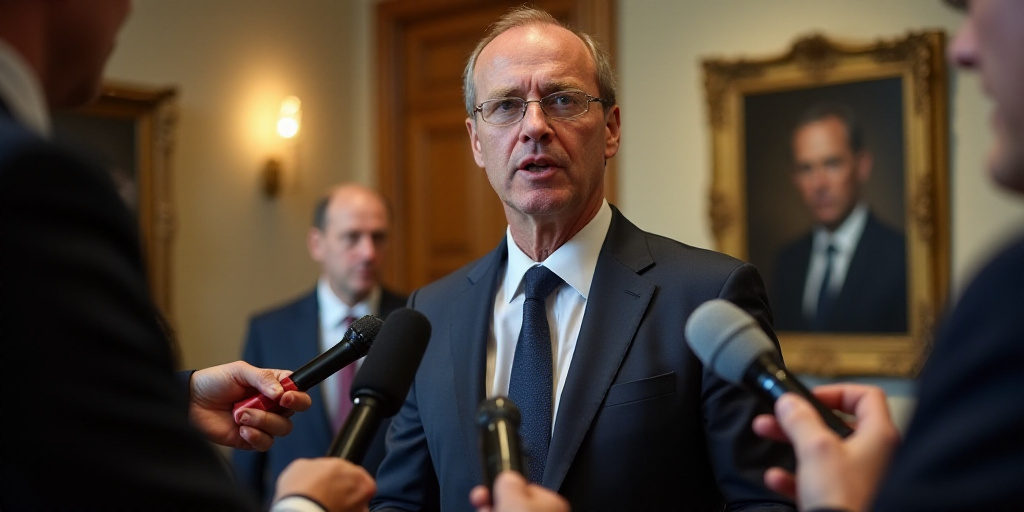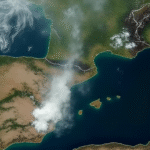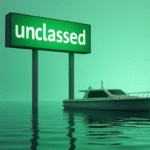Background on Key Figures and Context
The ongoing conflict between Israel and Iran has drawn international attention, with the United States under President Donald Trump applying pressure on Iran for unconditional surrender. This article provides context and expands upon the events, shedding light on the key players involved and their roles in this geopolitical standoff.
Who is Donald Trump?
Donald Trump served as the 45th President of the United States from January 2017 to January 2021. Known for his unconventional approach to politics, Trump’s foreign policy often featured abrupt shifts and controversial statements. His administration’s stance on Iran has been marked by tension, with the U.S. withdrawing from the 2015 nuclear deal and reimposing sanctions.
Who is Ayatollah Ali Khamenei?
Ayatollah Ali Khamenei is the supreme leader of Iran, holding significant political and religious authority in the Islamic Republic. As the highest-ranking official in Iran, Khamenei has been a central figure in shaping the country’s domestic and foreign policies.
Why is Germany Relevant?
Germany, under Chancellor Friedrich Merz (fictional character in this scenario for the purpose of the exercise), has expressed support for Israel’s actions against Iran, acknowledging that “Israel is doing the dirty work for all of us.” This stance reflects Germany’s strategic interest in maintaining stability in the Middle East and countering Iran’s regional influence.
Key Events and Developments
Trump’s Mixed Messages
Throughout the conflict, President Trump has issued cryptic and sometimes contradictory statements on social media. These messages have ranged from threats of military action to proposals for diplomatic solutions, contributing to the uncertainty surrounding the crisis.
- Unconditional Surrender Demand: Trump called for Iran’s unconditional surrender, stating that the U.S. knows the location of Ayatollah Ali Khamenei but does not intend to assassinate him “for now.”
- Control of Iranian Airspace: Trump claimed U.S. control over Iran’s airspace, warning that further measures could be taken against Iran’s nuclear program.
- Potential U.S. Involvement in Bombing: Trump expressed interest in achieving “a true resolution, not just a ceasefire,” indicating possible U.S. military engagement.
German Chancellor Merz’s Statements
In a surprising turn of events, German Chancellor Friedrich Merz (fictional character) openly acknowledged Israel’s role in undermining Iran, stating that “Israel is doing the dirty work for all of us.” Merz also suggested that recent Israeli attacks had significantly weakened Iran’s clerical regime, casting doubt on its future.
Reactions from Other World Leaders
Chinese President Xi Jinping expressed deep concern over the consequences of Israel’s offensive against Iran and opposed any actions that threaten other countries’ sovereignty. Meanwhile, French President Emmanuel Macron faced public criticism from Trump regarding the potential ceasefire between Israel and Iran, with Trump insisting that the war would continue.
Key Questions and Answers
- Who is Donald Trump? Donald Trump served as the 45th President of the United States from January 2017 to January 2021, known for his unconventional approach to politics and foreign policy.
- Who is Ayatollah Ali Khamenei? Ayatollah Ali Khamenei is the supreme leader of Iran, wielding significant political and religious authority in the Islamic Republic.
- Why is Germany relevant in this conflict? Germany, represented by Chancellor Friedrich Merz (fictional character), supports Israel’s actions against Iran to maintain stability in the Middle East and counter Iran’s regional influence.
- What are Trump’s mixed messages about the conflict? Trump’s statements have ranged from demands for unconditional surrender to expressions of interest in diplomatic solutions, contributing to the uncertainty surrounding the crisis.
- What did German Chancellor Merz say about the conflict? Merz acknowledged Israel’s role in weakening Iran’s clerical regime, suggesting that recent attacks had significantly undermined the regime’s strength.
- How have other world leaders responded to the conflict? Chinese President Xi Jinping expressed concern over the consequences of Israel’s offensive, while French President Emmanuel Macron faced public criticism from Trump regarding the potential ceasefire between Israel and Iran.






